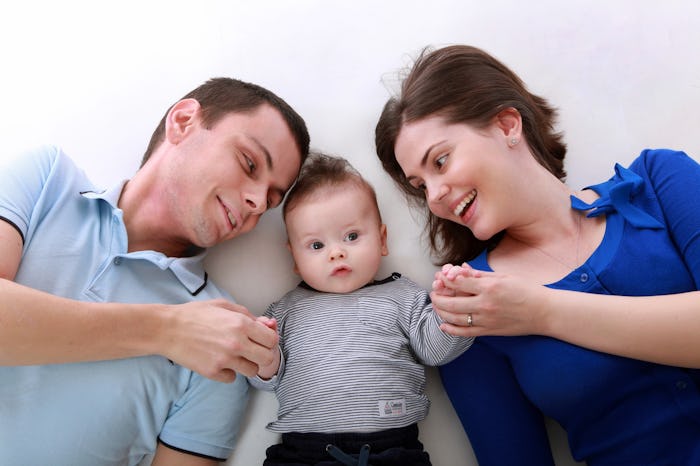Life
5 Ways Your Child's Sleep Habits Change For Life When You Co-Sleep
If you are currently co-sleeping, there's a good chance that you started doing so because it helped you and your baby get more rest. You have probably gotten loads of advice from well-meaning friends and relatives who want to prevent your child from developing terrible sleep habits in the future. And, it's true. There are many ways your child's sleep habits change for life when you co-sleep, but not necessarily in a negative way.
First and foremost, what's most important when you have a small child is that everyone in the house gets enough sleep. According to the Cleveland Clinic, when you don't sleep enough you lack alertness, have an impaired memory, are at increased risk for relationship stress, have a greater likelihood for car accidents, and feel as though you generally have less quality of life. Don't feel guilty if co-sleeping helps you avoid all of those side affects.
If allowing your child to sleep in your bed teaches him how to sleep all night long, you're already beginning to see a positive development in his sleep habits. This, and the other good habits you reinforce while co-sleeping will help him transition into his own bed and as he grows up, into his own home.
Here are some ways the sleep habits your child creates while co-sleeping can stick around for life.
1They Can't Fall Asleep Alone
Kids who co-sleep often have trouble falling asleep alone. Many parents introduce a transitional item, such as a lovey or stuffed animal, when their children move to a big bed. The Sleep Lady suggested that this will help soothe your baby and provide security when you aren’t there. As children grow up, their lovey might be replaced with a book, a smartphone, or a television to keep them company as they nod off.
2They Will Fall Back To Sleep More Quickly
Kids who co-sleep are often less stressed and, according to What To Expect, will go back to sleep more quickly when they wake up during the night. This habit of being able to fall back to sleep easily in the middle of the night can follow them into adulthood and help them get a good night's rest.
3They May Have Fewer Nightmares
The University of Notre Dame noted a study by P. Heron which showed that children who never slept in their parents' bed were more fearful than children who consistently co-slept. This fear can lead to anxious imaginations and nightmares. If your child is accustomed to having peaceful thoughts before bed, this habit can remain throughout their adulthood. Additionally, kids who co-sleep exhibit less long-term sleep anxiety according to Dr. Sears.
4They Need To Feel Warm And Toasty In Bed
Kids who co-sleep become used to warmth of their parents' bodies. When they move on to their big beds, they will often want to sleep with lots of pillows and blankets to mimic having their parents in bed. There are many adults who can only fall asleep under heavy blankets year-round. In fact, weighted blankets are used to help people with a variety of conditions sleep.
5They Will Co-Sleep With Their Own Children
An adult who has fond memories of co-sleeping as a child will likely want to recreate that sense of comfort and security in their own children. Co-sleeping is very common in many cultures. According to James J. McKenna, Ph.D. of The Natural Child Project many families in much of southern Europe, Asia, Africa and Central and South America co-sleep and have been doing so for generations.
